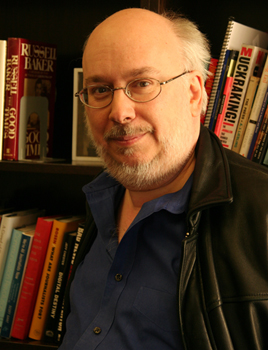
Henry Jenkins
Henry Jenkins will bring his expertise in media studies, pedagogy and activism to USC Shoah Foundation’s Memory, Media and Technology: Exploring the Trajectories of Schindler’s List conference this November.
Jenkins is the Provost’s Professor of Communication, Journalism, Cinematic Arts, and Education at the University of Southern California. He arrived at USC in fall 2009 after spending the past decade as the director of the MIT Comparative Media Studies Program and the Peter de Florez Professor of Humanities. He is the author and/or editor of 15 books on various aspects of media and popular culture, and has written for Technology Review, Computer Games, Salon, and The Huffington Post. Jenkins also wrote the article Lessons from Kony 2012 for the Institute’s Summer 2013 issue of PastForward.
At the conference in November, Jenkins will participate in the roundtable discussion “Digital Pedagogy, Education, Human Rights and Violence Studies” along with Mohammed Dajani, Andrea Peto, and Ethel Brooks.
Jenkins notes that the conference will be the first he has attended in the field of genocide studies. His work deals with the pedagogical and activist dimensions of expanded communication capabilities for people who have traditionally lacked access. He will be sharing his insights on how to prepare students to participate in the new media landscape, and how they can bridge between participatory culture and participatory politics.
In particular, Jenkins will share the research from his forthcoming book, By Any Media Necessary: Mapping Youth and Participatory Politics, which documents many groups that are involved in contemporary struggles over human rights and social justice – American Muslims, undocumented youth (“DREAMers”), and even fan clubs of popular young adult fiction – to inspire youth participation in human rights struggles around the world.
“I want to come and share what we learned with those involved in global struggles around genocide and I also want to learn what I can from these other participants as we seek to move into a more interventionist phase in our research, creating and sharing educational resources which can be used to inspire essential conversations around new media and social justice,” Jenkins said.
Jenkins’s participation in the conference will focus on the themes of new media and technology, and how they can be used to create change around the world in new and exciting ways.
“I am interested in developing a better understanding of what the participants are doing with new media platforms and participatory culture practices, how they are spreading knowledge, how they are inspiring participation, and what we can do now to challenge institutional power that would not have been possible at earlier moments in human history,” he said.
Getting together with the other conference participants is a powerful opportunity to develop personal relationships and have conversations that could not happen online, Jenkins said.
“For me, there's often something powerful about the off topic discussions over lunch or during breaks that can result in unexpected links between researchers,” he added.